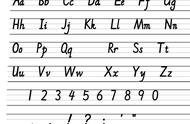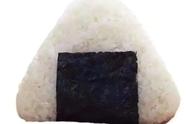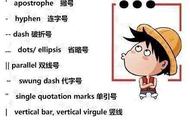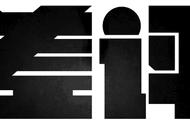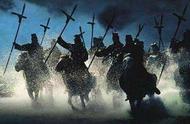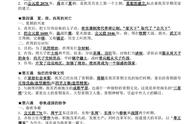
如何正确使用英文常用标点符号
汉语中的标点符号是根据英文的标点而制定的。对于一个普通的英语学习者来说,常用的标点符号不外乎四个:逗号,句号,问号和感叹号。
然而,中英文标点符号之间存在着一定的差异。例如,汉语中有顿号(、),书名号(《》),间隔号(•)而英语中没有这些符号。同样,英文中有括号apostrophe('), 连字符hyphen(-),斜杠slash(/)和反斜杠backslash(\)而汉语中却没有这些符号。
此外,某些符号在汉英两种语言中的形式不同。例如,中文的句号是空心圈(。)而英文的句号是实心点(.);英文的省略号是三个点(...)且位置在行底而中文的省略号为六个点(……)并且居于行中。以下为英文中常用标点符号的作用及例子。
一、逗号(,comma)
1. 用于一系列并列的内容之间,如:
I will be travelling to Singapore, Malaysia and Thailand.
3. 用于连接两个并列句,如:
Work hard, and you'll be likely to achieve success.
4. 用于连接含有状语从句的复合句中,如:
When I got home from work, it was almost midnight.
5. 用于以副词、介词短语、名词短语放在句首作状语的句子中,如:
Fortunately, they survived the earthquake.
In the end, we won the first prize in the speech competition.
6. 用于直接引语中,如:
Tom shouted, "Would you please shut up?"
"I'm tired to death," Charlie said.
7. 用于反意疑问句中,如:
You don't trust me, do you?
Let's go shopping together, shall we?
8. 用于含有同位语的句子中,如:
I am Li Hua, president of the school students' union.
Beijing, the capital of China, is the center of politics, economy and culture.
二、句号(. full stop/period)
1. 用于结束一个完整的句子,如:
The game is over.
Whatever you do and wherever you go, I'll be right here waiting for you.
2. 用于某些英文单词的缩写中,如:
Mr. and Mrs. Brown, Dr. Smith, P.S. 等。
三、问号(? question mark)
用于各种疑问句中,如:
Do you love me?
What're you going to do tomorrow, staying home or hanging out with friends?
Don't you understand so far?
Why do you ask me the same stupid question again and again?
Let's get started, shall we?
Lucy asked angrily, "Are you deaf or something?"
四、感叹号(! Exclamation mark)
用于表达惊讶,愤怒,兴奋等强烈的情感和语气的句子中。值得注意的是,在商业写作中要注意感叹号的应用,否则会显得突兀,造成不必要的误会。
Hi! It's great to see you again!
How dare you!
I will never let you down again!
五、缩略号(' apostrophe)
1. 表示一个或几个字母和数字的省略。如:
It's; I'm; we're; there's; don't; ma'am
2. 构成名词所有格形式。如:
students' union
The People's Republic of China
3. 表示复数形式,正式的写法须在s 前加" ' "。如:
In the 1990s = in the 1990's
六、分号(; semicolon)
1. 用于分隔两个并列的句子。另外分号也经常与连接副词 thus, however, therefore, on the other hand等一起使用。如:
Boys tend to like sports; girls tend to like music.
We got up very early; however, the bus had left when we got to the bus station.
On the one hand, I often want to eat out; but on the other hand, I have to save money to support my family.
2. 用于分隔相似的内容。如:
The kids are fooling around in the house. Some are singing and dancing to the crazy music; some are fighting and crying; others are running and screaming.
七、冒号(: colon)
1. 用于对后面内容的作介绍或解释。如:
Here are my personal items: a pen, a notebook, a laptop and a pair of glasses.
2. 用于列出并列信息的清单,如:
We'd like to order the following items:
·T-shirts
·jeans
·socks
·Sports shoes
3. 用于直接引语中,倾向于书面语,但在非正式英语中常用逗号。如:
The woman yelled: "Get off your paws, or I'll call the police."
4. 用于信函或演讲词的称呼之后,而在英国英语中多用逗号。如:
Dear Mr. and Mrs. Smith:
Ladies and gentlemen:
5. 用于表示数字时间和比例关系。如:
9:00a.m. 3:30PM 10:6
6. 用于标示网站名称,如:
http://www.360doc.com/

如何正确使用英文常用标点符号
八、连字符(- hyphen)
1. 用于某些前缀和复合词。如:
non-recyclable; ex-chairman; open-minded; peace-lover
good-for-nothing; out-of-town; commander-in-chief; a once-in-a-lifetime opportunity
2. 用于构成某些复合数字。如:
thirty-four; three-year-old; 1949-2020
3. 用于书写中一个单词的换行, 一般按音节来划分。如:
You are supposed to be self-confident and inde-
pendent so that you'll be successful.
九、破折号(— dash)
1. 主要用于解释或补充说明
It was a very important event in the computerization of life — a sign that the informal, friendly communication of people working together in an office had changed from notes in pen to instant messages and emails.
That may sound impossibly grand — as if they want kids to learn to draw by copying classical paintings.
2. 用来表示"从……到……"的概念,尤指时间年份。例如:
William Shakespeare, 1564—1616, is one of the greatest poets and dramatists in the history of British Literature.
十、括号(() brackets)
1. 表示顺序的数字和字母。如:
(1)、(2)、(3) ; (a)、(b)、(c); (i)、(ii)、(iii)
2. 表示附加的解释成分,可以是单词、词组或句子。如:
If you initiate the contact and wish to keep the tone formal, use a title (i.e. Mr., Mrs. or Ms.)
E-mail addresses are made up of two parts: the username (also called the 'userid) and the domain.
If they are introduced when still young (less than 6 months for cats, a year for dogs), it is highly probable that the two pets will get along swimmingly.
十一、引号( ''单引号single quotation marks, ""双引号double quotation marks)
引号分单引号(single quotation marks) 和双引号(double quotation marks) 。单引号只用在一个直接引语中所含有的另一个直接引语上,属于非常用符号。
1. 表示直接引语。如:
"Alice invited me to dinner. 'All right then,' I said. 'Okay, here we go.' So we went out together for something delicious."
"I'm awfully sorry," I said and stepped forward only to run into it again.
2. 表示文章、报告、评论、短篇故事、诗歌、戏剧、电影等标题/篇名等。如:
Gorge W. Bush wrote a book entitled "The Turning points".
3. 表示反语、绰号等特殊意义。如:
The kids often bullied him, calling him "fat bear".
4. 表示专有名词或引用某个短语或句子。如:
One is supposed to say "You're welcome" whenever someone says "Thank you" to you.
十二、省略号(... ellipsis)
1. 用于列举、避免重复或故意省略不想呈现的内容和信息。如:
As for snacks, I love chocolate, candy, cookies, cakes, …
Joan hurried home, only to find that her beloved dog lying in a pool of blood…
2. 表示强调、犹豫、迟疑或停顿等。如:
But he's nervous. "I'm here to tell you today why you should … should…" Chris trips on the "-ld," a pronunciation difficulty for many non-native English speakers.
His teacher, Thomas Whaley, is next to him, whispering support. "…Vote for …me …"
十三、特殊符号(@ at; each)
用于表示e-mail地址,单价或速度。如:
info@southeastasiabank.com
We sell it @ $19.99 per item.
The car was running @ 160km per hour.

如何正确使用英文常用标点符号



